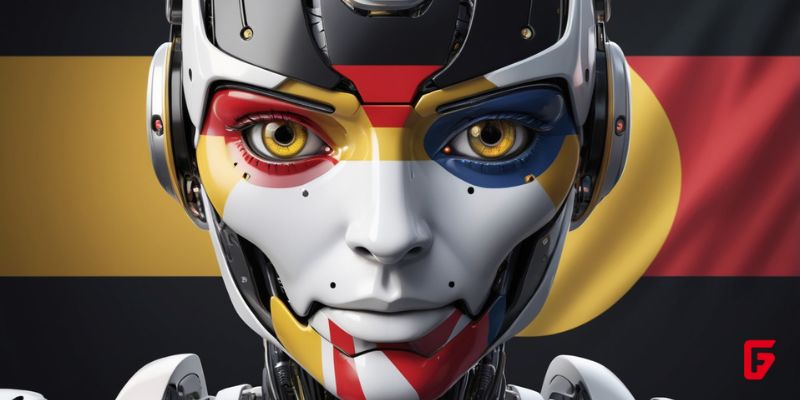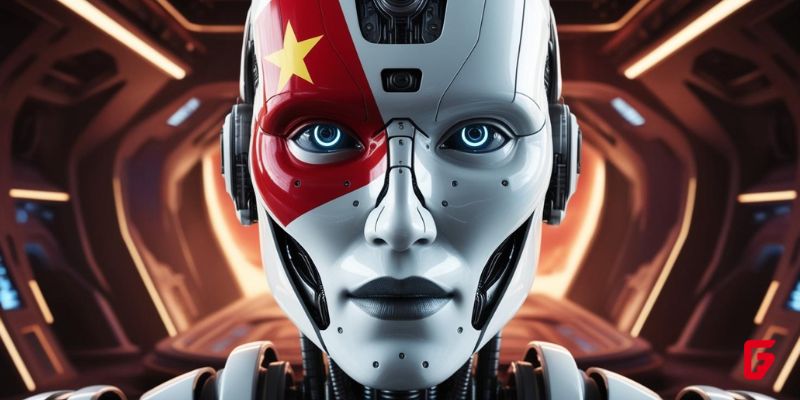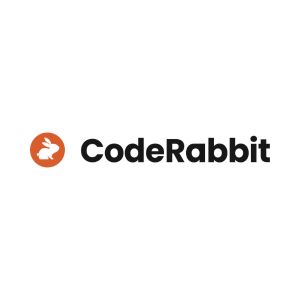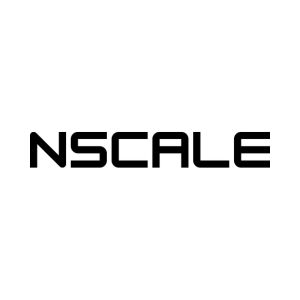Startups & Business News
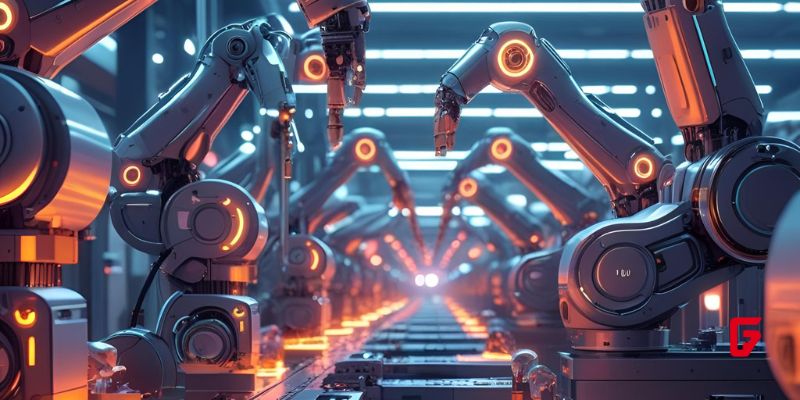
As industrial automation continues to evolve, the race to develop robots that can handle increasingly complex, heavy-duty tasks is heating up. In a bold move, Apptronik—the Texas-based robotics company behind the Apollo humanoid robot—has officially unveiled Elevate Robotics, a new subsidiary dedicated to building non-humanoid industrial robots. This initiative marks a significant pivot for Apptronik, expanding its focus beyond humanoid robotics to address automation challenges that go beyond the limits of the human body.
Why Non-Humanoid Robots Matter
While humanoid robots like Apptronik’s Apollo are designed to work seamlessly in environments built for humans—think manufacturing floors, warehouses, and logistics centers—there are many industrial tasks where the human form is not just unnecessary, but limiting. Heavy lifting, repetitive high-precision work, and operations in hazardous environments often demand robots that are specialized, rugged, and capable of “superhuman” performance.
Elevate Robotics is stepping in to fill this gap, leveraging Apptronik’s decade-long expertise in robotics innovation to develop automation solutions that are purpose-built for the demands of modern industry. The goal is to create flexible, multipurpose robots that can be deployed at scale, transforming productivity and safety in sectors like automotive, electronics, logistics, and more.
The Technology Behind Elevate Robotics
Apptronik’s journey to commercial robotics has been marked by a series of breakthroughs, including exoskeletons, bipedal mobility platforms, mobile manipulators, and robotic arms that can lift more than their own weight. These advancements have laid the groundwork for Elevate’s mission: to commercialize automation solutions that are not constrained by the human form.
Elevate Robotics will operate independently, led by Paul Hvass, a seasoned robotics entrepreneur and former co-founder of Plus One Robotics. The team is composed of top roboticists and industrial automation experts, ensuring that Elevate is well-positioned to push the boundaries of what’s possible in industrial robotics.
What This Means for Industry
The launch of Elevate Robotics signals a shift in how companies approach automation. While humanoid robots are ideal for environments designed for people, non-humanoid robots can be optimized for tasks that require strength, endurance, or precision beyond human capabilities. This opens up new possibilities for industries facing labor shortages, safety challenges, or the need for round-the-clock productivity.
Apptronik’s continued focus on Apollo and humanoid robotics ensures that both approaches—human-centric and superhuman industrial automation—will coexist and complement each other. The company’s recent $403 million in Series A funding will help fuel both initiatives, with Apollo already being tested by major partners like Mercedes-Benz and GXO Logistics.
The Broader Robotics Landscape
The robotics market is becoming increasingly competitive, with companies like Agility Robotics, Figure AI, and Boston Dynamics also making strides in humanoid and industrial robotics. However, commercial deployments have been slow, and the industry is still searching for the right balance between innovation and practical application.
Elevate Robotics enters this landscape with a clear mandate: to deliver industrial automation that is not only powerful but also practical, scalable, and adaptable. By focusing on non-humanoid solutions, Elevate is poised to redefine what it means to automate the most demanding jobs in industry.
Key Takeaways
Apptronik launches Elevate Robotics to focus on non-humanoid industrial automation, complementing its existing humanoid robotics business.
Elevate Robotics aims to automate heavy-duty, industrial-scale tasks that go beyond the limits of the human form, using novel robotics technology.
The new subsidiary is led by Paul Hvass and staffed by a world-class team of roboticists and industrial automation experts.
Apptronik continues to develop Apollo, its flagship humanoid robot, for applications in manufacturing, logistics, and beyond.
The robotics industry is evolving rapidly, with both humanoid and non-humanoid robots playing critical roles in the future of work.
Looking ahead, Elevate Robotics is set to expand the possibilities of industrial automation, pushing the boundaries of what robots can achieve in the real world. This is not just another robotics startup—it’s a strategic move to address the toughest challenges in industrial automation, backed by a decade of innovation and a team of seasoned experts. The future of work is being redefined, and Elevate Robotics is at the forefront of this transformation.

futureTEKnow
Editorial Team
futureTEKnow is a leading source for Technology, Startups, and Business News, spotlighting the most innovative companies and breakthrough trends in emerging tech sectors like Artificial Intelligence (AI), Robotics, and the Space Industry.
Discover the companies and startups shaping tomorrow — explore the future of technology today.
Most Popular
Trending Companies
Latest Articles

Dwelly Raises $93M to Supercharge AI-Powered UK Rentals Roll-Up
London startup Dwelly just landed $93M to snap up UK rental agencies and inject AI smarts. Founders from Uber and

Encord Raises $60M Series C: Fueling Physical AI Data Wave
Encord just landed $60M in Series C funding to supercharge data tools for physical AI. Founders Eric Landau and Ulrik

Foodforecast Raises €8M Series A to Slash Ultra-Fresh Food Waste with AI
Foodforecast, a Cologne AI foodtech firm, just scored €8M in Series A funding led by SHIFT Invest. Their tools predict

AI-Driven Operational Excellence: How Leaders Scale Ownership, Discipline, and Continuous Improvement in 2026
In 2026, AI scales operational excellence fundamentals—clear ownership, disciplined execution, and continuous improvement—letting leaders focus on outcomes while systems handle

VoiceLine raises €10M to scale voice AI for enterprise frontline teams
Munich-based VoiceLine has closed a €10M Series A round to grow its voice AI platform for frontline sales and service

AI-Driven Logistics & Distribution Transformation: From Insight to Scalable Impact
AI is redefining logistics transformation—from network design to real-time execution. This article explores how data-driven insight, intelligent automation, and scalable
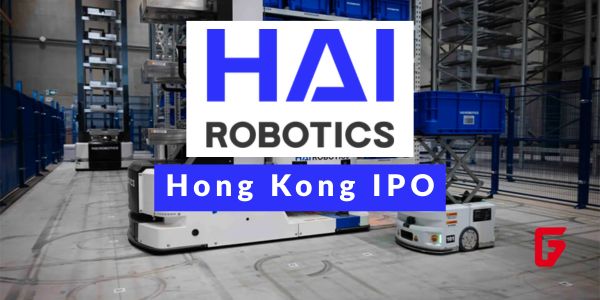
Hai Robotics Hong Kong IPO: From Startup Funding to Warehouse Robot Leader
Shenzhen’s Hai Robotics, pioneer in ACR warehouse robots, files for HK IPO after raising over $500M in funding rounds led

AI-Enabled Process Engineering & Continuous Improvement: Designing Systems That Learn
Explore how AI transforms process engineering and continuous improvement into self-learning systems. This article explains how organizations can design operations
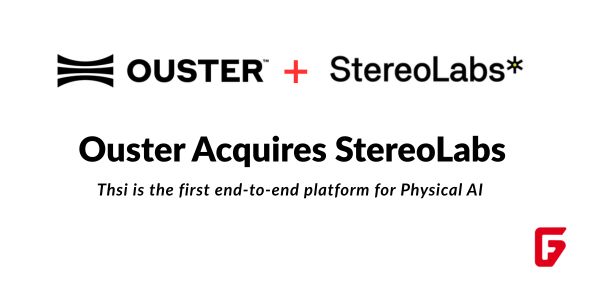
Ouster Acquires StereoLabs: Unified Physical AI Sensing Platform Launches
Ouster’s $35M StereoLabs acquisition fuses lidar and ZED cameras into end-to-end Physical AI sensing. Founders Cecile Schmollgruber and team drive
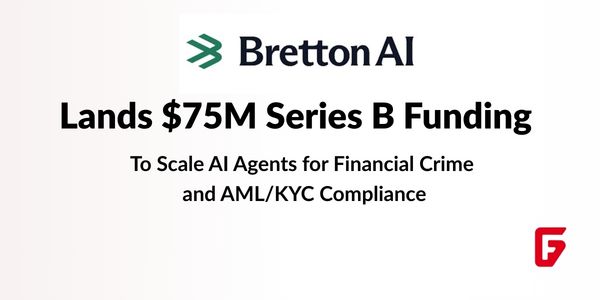
Bretton AI Lands $75M Series B Funding to Scale AI Agents for Financial Crime and AML/KYC Compliance
Bretton AI’s $75M Series B modernizes AML KYC compliance via AI agents, slashing staffing costs for banks and fintechs like

Axiom Space Raises $350M to Build Commercial Space Station and NASA Spacesuits
Axiom Space has locked in a fresh $350M raise to push its commercial space station and NASA lunar spacesuits toward

Santé Raises $7.6M Seed: AI Fintech Revolution for Wine and Liquor Retail
New York startup Santé secures $7.6M seed to build AI-powered POS for liquor stores, tackling regs & inventory woes after
futureTEKnow is focused on identifying and promoting creators, disruptors and innovators, and serving as a vital resource for those interested in the latest advancements in technology.
© 2026 All Rights Reserved.
![Discover the top 10 AI companies in Germany [1st Edition], revolutionizing industries with cutting-edge technology and innovations.](https://futureteknow.com/wp-content/uploads/2025/02/Top-10-AI-Companies-in-Germany-Leading-the-Tech-Revolution-futureTEKnow.jpg)
